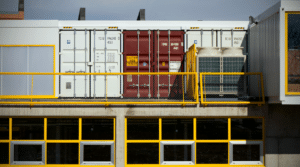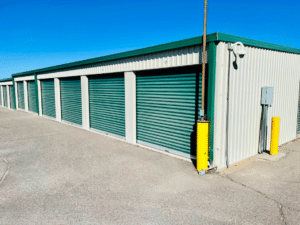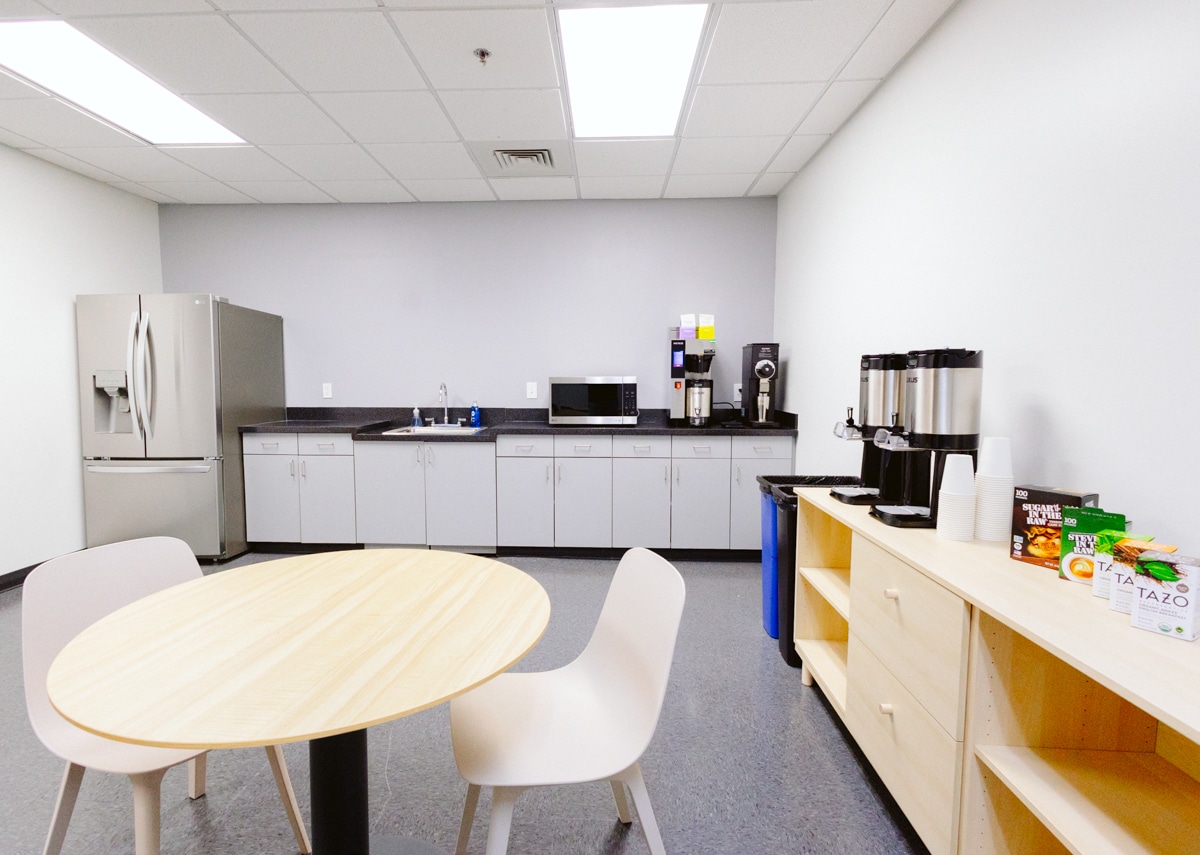Co-warehousing, Comparisons, Leasing Options, Storage, Warehousing • 8 Minute Read • Sep 9, 2024
Commercial Storage Units: Pros and Cons of a Co-Warehouse

Finding a commercial storage unit is exciting for many reasons. Not only are you about to invest in a more formal and professional storage space. You’re also about to get your home back. Picture a basement where you can watch tv without being surrounded by boxes. Or a garage that can fit your lawn mower again.
But now comes a big decision… which type of warehouse is right for you? Are you picturing a traditional warehouse, with a long-term contract and a building all to yourself? Or is a co-warehouse a better option for your growing business?
Here are the pros and cons of using a co-warehouse as your commercial storage space.
Co-Warehousing: What is it?
Co-warehouses solve a need for small to large business owners looking for a flexible work and storage space. It divides a larger warehouse into smaller units and splits the cost amongst multiple tenants. Co-warehousing also offers flexible contracts, community spaces, and property management.
Businesses can store documents, inventory, supplies and materials. A co-warehouse can also act as a production or office space.
Co-warehouses offer the unique benefit of catering the entire warehouse space to the exact need of brands – not an inch is wasted. This also means business owners can focus on their business rather than their warehouse space. It’s a sure way to make the most of your warehouse investment.
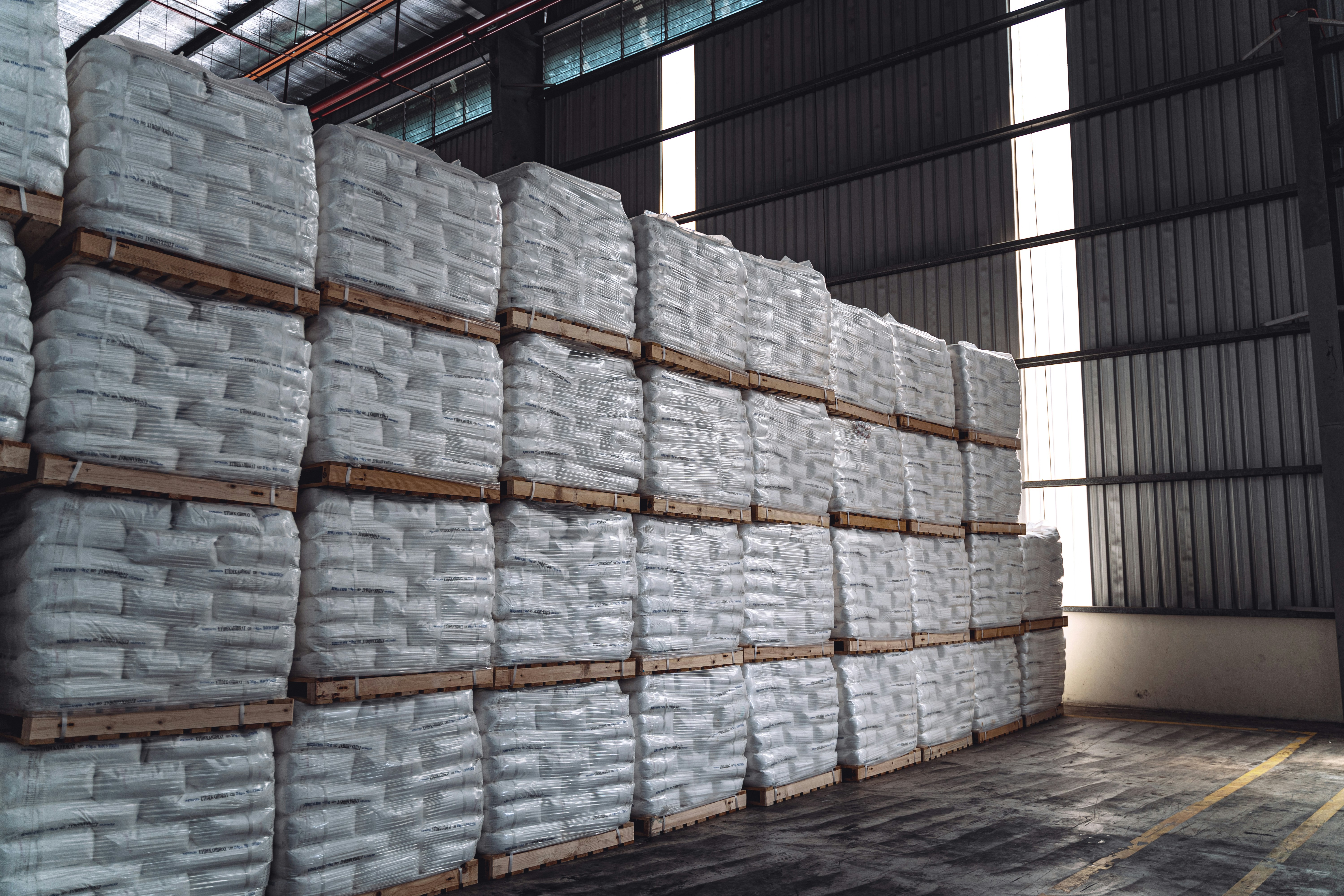 Pros of Co-Warehousing for Commercial Storage
Pros of Co-Warehousing for Commercial Storage
From being cost efficient to their overall flexibility and opportunities for collaboration, there are lots of reasons businesses select co-warehouses for their commercial storage space.
Cost Efficient
Rather than renting out an entire warehouse, you’ll be renting out a percentage of the warehouse. That means that the cost of renting the space is far less, and there are lots of shared costs. Rent, utilities, security, wifi, and more are split between all the tenants.
Also, tenants are able to purchase products in bulk together, as a discount. Whether you need paper, cardboard boxes, or raw materials – working with your neighbors in the co-warehousing space can save you money.
In the long run, having an organized inventory space ensures the safety of goods and employees. This minimizes inventory damage and loss, as well as worker’s compensation claims.
Resource Optimization
In a co-warehousing space, you don’t have to invest in all the pieces of a warehouse on your own. Many facilities have forklifts, pallet jacks, and other machinery. When you’re just starting out, even renting these pieces of equipment can be a huge investment.
As mentioned previously, having a formal space to organize your products can improve your shelving efficiency and in turn your order efficiency. Getting your products and services to customers faster can reduce churn and improve customer satisfaction.
Plus, it will save you time and effort when looking for inventory, products, materials, and any paperwork you need. Instead, you can focus on your core business and opportunities to propel your organization forward.
Flexibility and Scalability
When you rent a traditional warehouse, you’re stuck with the space that you have. If you need more space, you’ll have to move out of the warehouse or expand to a new warehouse. This isn’t necessarily the case with a co-warehouse. Since you’re only taking up a percentage of the warehouse, you have the opportunity to expand when you need to into a bigger space.
Or, if your business has seasonal fluctuations, you can take on more space as you need. Co-warehouses are designed to be flexible, so you also won’t be locked into a seven to fifteen year rental contract, like lots of traditional warehouses request.
Networking and Collaboration
Co-warehouses help business connections flourish, because you’ll be working side by side with other business owners. Not only will you have the opportunity to learn from other owners, you can also start partnerships and joint ventures.

Cons of Co-Warehousing for Commercial Storage
A co-warehousing space may not be right for every business. Here are some of the potential drawbacks of renting a co-warehousing space.
Lack of Control Over the Warehouse
A co-warehouse is not as private as if you rented a space all to yourself. You won’t have complete control over the entire warehouse. If someone is loud, messy, or inconsiderate, it could be frustrating.
Unfortunately, you can’t pick your neighbors. Also, if someone is especially inconsiderate of the community space and, for lack of a better term, hogs them, you may have a hard time accessing the amenities you need.
Even if you don’t have terrible neighbors, the additional logistics of working with other businesses can be complicated. For example, your organization could be sharing docking space, resources, or equipment.
This could create delays, which could impact your customer’s overall satisfaction.
How do co-warehouses compare to a pod as a commercial storage unit?
A storage pod is a portable storage container designed for temporary storage and easy transportation of items. They can be great temporary storage options. These containers are often used for moving, storing personal or business items, or during renovations.
While pods can be a great way to help businesses that are price-sensitive expand, they aren’t especially safe. Pods are frequently targeted for break ins, and may require extra security measures to keep your storage space safe.
You’ll also need a place to put the pod. Many HOAs won’t allow you to put a storage pod in your driveway or yard. Even if you don’t have HOA hoops to jump through, storing your business in a pod outside your home can make it difficult to separate your home life and work.
Co-warehouses, on the other hand, are incredibly safe with multiple security measures in place. You can also move your entire business into a co-warehousing space, creating a definitive separation of your work and home life.
How do co-warehouses compare to a coworking space?
A co-warehousing space is not the same as a coworking space, mainly because coworking spaces usually aren’t ideal for storing products or materials. Coworking spaces tend to be open space with desks for rent, or smaller, individual office spaces. While there may be a closet or two, storing wracks of materials or products isn’t ideal.
In less secure coworking spaces, you may be encouraged to take your valuables home. This isn’t the case when you use a co-warehousing space as your commercial storage unit, where you’ll always be able to secure your valuables.
How do co-warehouses compare to a storage unit?
Renting a storage unit as a warehouse is another cost-effective commercial storage unit option. This is ideal if you don’t plan to work from the space, or won’t need regular access. You can store things like documents, seasonal inventory, or small equipment with relative ease.
Some self-storages can accept deliveries on your behalf, but not all. The more space you rent, and the nicer the facility (including if it has a front desk person or not) will all hike up the price. You may also have to provide your own tools and equipment like pallets, pallet jacks, carts, etc.
Security and temperature can sometimes be an issue when renting a storage unit. Ultimately, you get what you pay for. Also, if you have large products and materials, you likely won’t be able to use a storage unit.
Co-warehouses, on the other hand, are incredibly secure and can provide enough storage space for large items. There’s a front desk that can sign for your packages, along with amenities not offered at storage units and pods, like kitchens, conference rooms, and office spaces.
While you may be tempted to rent a pod or a storage space to save money, co-warehousing offers a community centered space with amenities at a small cost increase. You can’t work out of a pod or storage unit. And, you can’t use it as your physical address. You’ll also have to take all your products and materials to shipping facilities, adding extra errands to your day.

How do co-warehouses compare to a traditional warehouse?
Traditional warehouses are ideal for businesses that move a high volume of inventory. They’re safe investments for more established businesses, who know the ebbs and flows of their inventory from years of experience. It can also be helpful to have reputable investors to cover the cost of the warehouse if the economy takes a turn for the worst.
This is also likely your only option if you sell really large items, like tractors or industrial machinery.
If your business doesn’t have the financial backing, years of documentation, or giant products, a co-warehousing space will likely be a better fit.
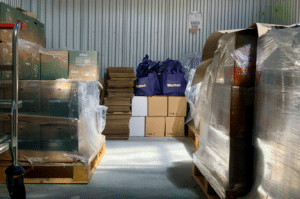
Ready to rent a co-warehousing space as your commercial storage unit?
A commercial storage unit needs to be safe, accessible, improve organization, and your business operations. But it can also be an office space, include additional amenities, build your community and provide you with a better work/life balance.
If a co-warehouse is the right next step for your business, and you’re located in Atlanta, explore Shift as a potential co-warehousing space.
Not located in Atlanta? Sign up for our newsletter to stay apprised of other locations coming soon, including Dallas and Denver. Or, sign up to receive tangible ideas for commercial business owners straight to your inbox.
